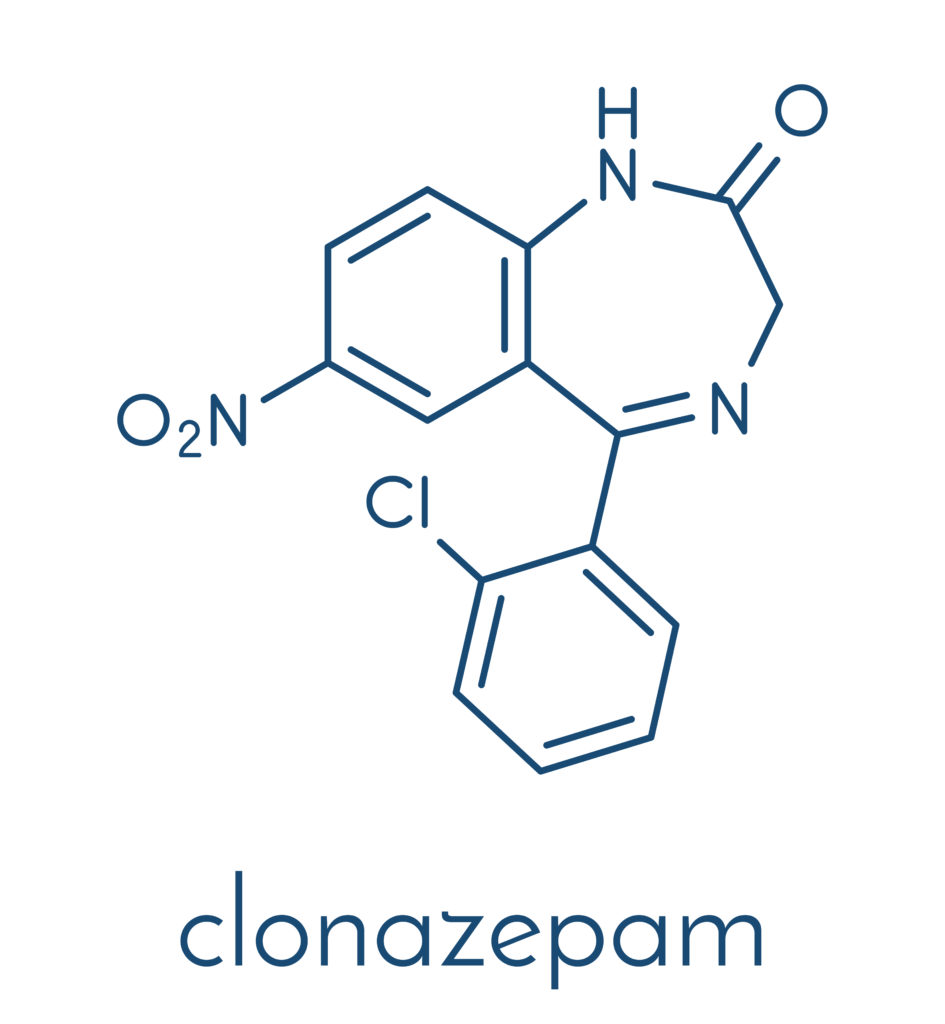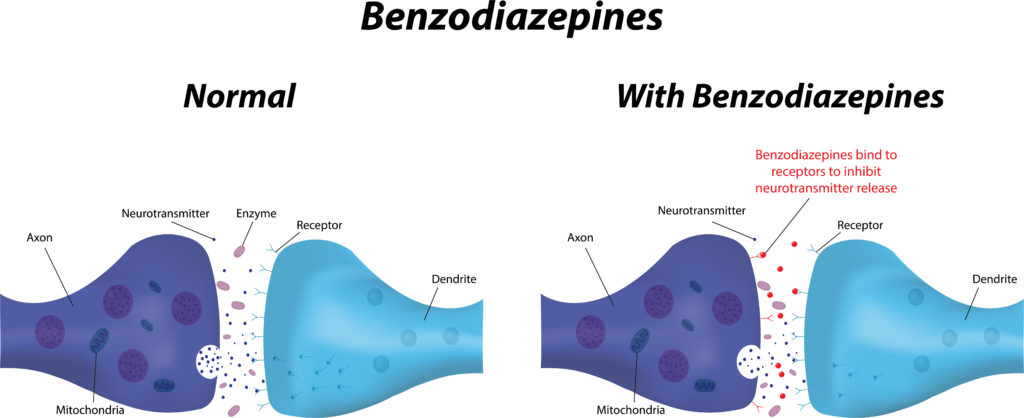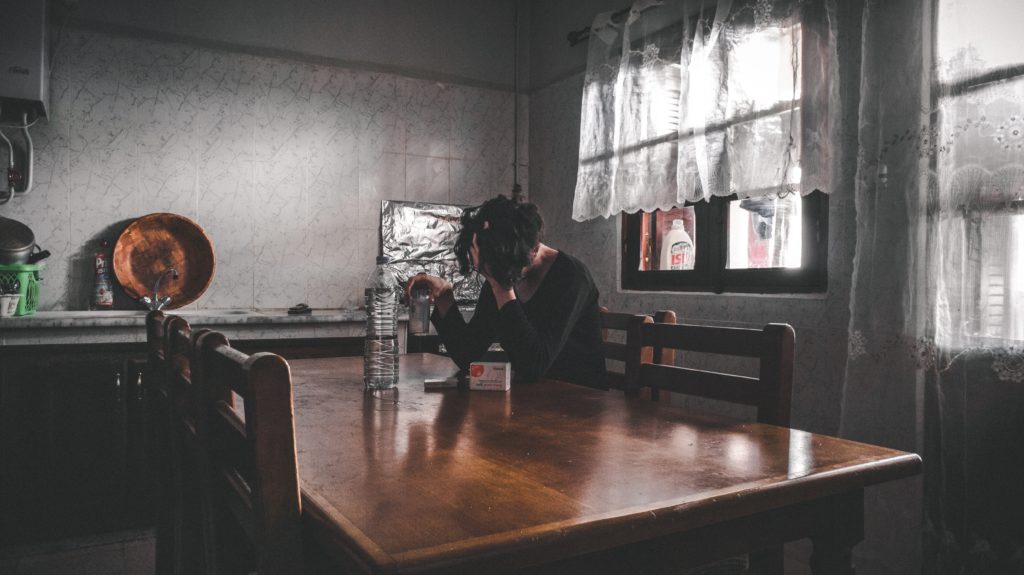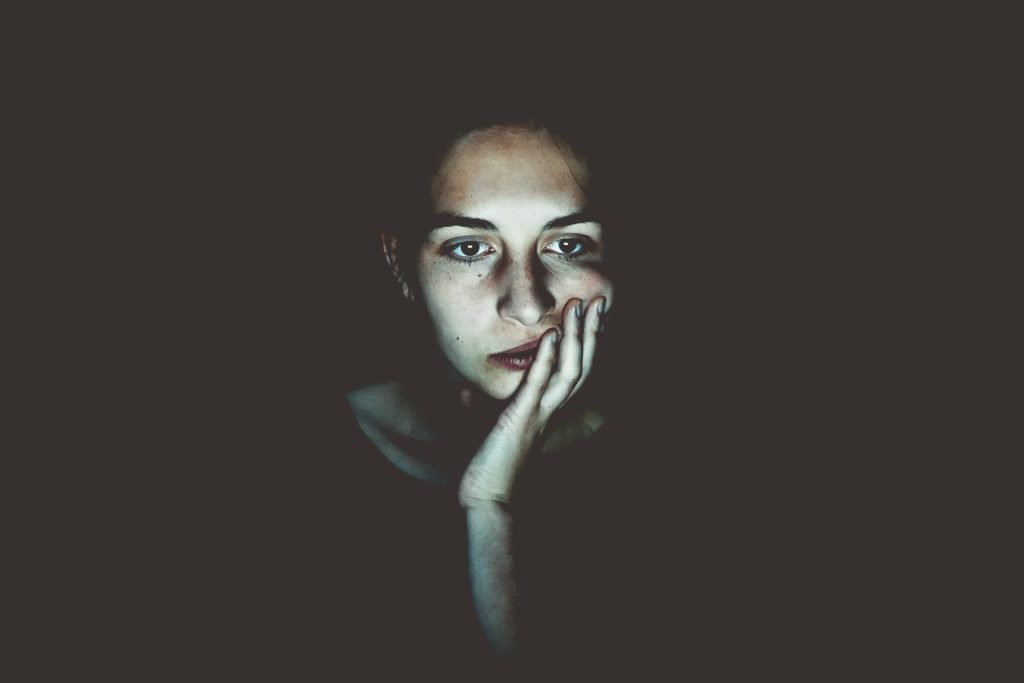What is Klonopin?
Klonopin is one of the most popular well-known benzodiazepine drugs. When used as a prescription, Klonopin helps treat negative symptoms of anxiety disorders, agoraphobia, and panic attacks. Klonopin is another name for the generic drug, clonazepam. Initially, higher doses of clonazepam were useful in some instances for treating epilepsy and seizures. Through the mid-1970’s, Klonopin was treating seizures and movement disorders. Around this same time, as barbituates were getting less and less recognition because of their overly harsh sedative effects, doctors eventually found Klonopin to be a good alternative for treating anxiety. It was studied then shown to be more useful for severe anxiety and panic disorders. To better explain what this drug is, it might be helpful to know that it is referred to as a “benzo”, just like Xanax and Ativan.

As with any other benzo or prescription drug, there are always possibilities for drug abuse, undesirable side effects, and even overdose. It is known that individuals who struggle with substance abuse can quickly become dependent on benzos like Klonopin. If a doctor recommends Klonopin to you, it’s crucial that you follow the exact dosage and intake instructions.
Klonopin comes in a tablet pill form to take orally. The drug works by slowing down major overactive stimulation in the body as well as the brain. Because Klonopin tends to deliver calming, drowsy, and sedative effects, it’s important to watch how much you– or your loved one– take.
Klonopin, Valium, Xanax, and Ativan are of the top 100 prescribed medications in the United States. There is no wonder why these “sedative” medicines become increasingly handed out by doctors. Since anxiety disorders affect over 18% of the American population, it’s understandable that more and more people are succumbing to medication dependency.
How is Klonopin Addictive?
Unfortunately, a lot of people who initially take benzodiazepines for legitimate medical purposes can end up physically dependent on the drugs. Alternatively, nonmedical use of benzos like Klonopin and Xanax regularly get abused recreationally and socially. Often using the term “downers” or “tranks” (short for tranquilizers), recreational users go back to the drug time after time to feel the intense calm, carefree feeling. Like other benzos, Klonopin slows all functions of the body, seeming to remove worry, stress, tension, pain, frustration, and other uncomfortable feelings.
Klonopin is known for lasting anywhere from six to twelve hours. Its half-life– about 20 to 40 hours– is nearly twice as long as the half-life of Xanax. A drug’s “half-life” is the amount of time it takes from consumption to process and break down half the amount of drug that was taken. For example in this instance, after about 30 hours, only half the amount of Klonopin will remain in the body.
So how does a pill that temporarily relieves pain and anxiety end up being addictive? As the benzodiazepine binds to the gamma-aminobutyric acid (GABA) receptors in the brain, it blocks overactive neurotransmitters, signaling to slow everything down. You can guess that this feeling is desired, especially in our modern chaotic, fast-paced society. Therefore an escape from such stress of daily life, and even truer for someone who struggles with immense anxious thoughts or panic, comes as an incredible relief.

Tolerance
The more the drug someone takes, something called a tolerance builds up in the user. Tolerance means the more accustomed an individual becomes to taking Klonopin (or any other substance), the less their body will react to it as it once did. Hence, the user likely feels a need to increase their dose and take more. However, there is a line of safety that he or she can eventually cross with the prescription. One might think that they need to take an excessive amount of Klonopin in order to “feel” the effects, but the body can only handle so much. Thus, in extreme situations yet quite commonly seen in the United States, overdose can happen.
Symptoms of Someone Who is High on Klonopin
Klonopin depresses the central nervous system. Therefore, any person who takes this drug will seem overly relaxed, slow, or “out of it.” Some of the signs of an active Klonopin high include the following:
- Sleepiness
- Dizziness or blacking out
- Drowsiness
- Confusion and issues with memory
- Slurred speech
- Blurry vision
- Muscle inactivity
- Joint pain
- Lack of normal coordination
- Frequent bathroom use
- Abnormal saliva production/ drooling
As with any other drug, there may be side effects. Such signs of reaction can happen with normal usage as well as with Klonopin abuse. Adverse side effects may appear as:
- Trouble breathing normally
- Inability to swallow
- Swelling
- Throat pain and a hoarse voice
- A decrease in sex drive
- Change in appetite
- Forgetfulness
- Rash or sensitive skin on the body
Being aware of how the body reacts to pharmaceutical drugs is essential especially when dealing with addictive benzos. If you or a loved one continues to use despite showing signs of negative side effects, a dependency or physical addiction could be forming.

Signs of Klonopin Addiction
The first and most obvious sign of an addiction is the increase in tolerance to the drug. When this happens, a large amount of the benzo pills need to be taken for the person to feel the desirable effects. As we can see with similar drugs in the same category such as Xanax, Librium, and Ativan, tolerance can fluctuate from person to person. However, it can result in an addictive dependency rather quickly. This is particularly true in a situation where the user is taking the drug for chronic pain.
Unfortunately, this kind of substance dependency can be dangerous. It’s sad that normal people in need of necessary pain relief in their day-to-day lives are increasingly becoming bound to this drug addiction. Including the signs of a Klonopin high as mentioned above, you or a loved one might be addicted if these symptoms are present.
Symptoms of Abuse During Withdrawal:
- Pain
- Sensitivity to anxiety
- Panic attacks
- Mood swings and irritability
- Seizures
- Shakiness, tremors, convulsions
- Insomnia or other sleep disturbances
- Flu-like symptoms such as aches, pains, fever, cold sweats
- Hallucinations or Psychosis
- Feeling depressed
- Feelings of detachment or being out of touch with the real world
What Can I Do About a Klonopin Addiction?
If you or someone you know appears to have an addiction to Klonopin, there are several steps to take in breaking the cycle. Even though thousands of Americans are getting addicted to these types of drugs, there is a way out of addiction.
The first step is gradually ridding the body of the drug. It is unwise to try to quit “cold turkey,” specifically when it comes to drugs which inhibit or enhance brain function. If someone were to try stopping cold turkey without weaning off the medication they are dependent on, it could lead to some massive chemical depletion and cause damage.
In order to wean off Klonopin or other benzos, it’s safest to do so under the instruction of a doctor or psychiatrist. This way, you will avoid potential risks. The smoother the withdrawal phase goes, the more likely you will start on a successful path to sobriety. Detox and withdrawal effects can be harsh. The experience can also cause damage if not properly carried out. The first steps must happen for the addict to clear his or her body and brain from the dependency it has formed.
Proper treatment for drug addiction may be necessary following detox through withdrawal.
Detox
There are several ways to go about a healthy detox program. First to note is a hospital. If you ned to pursure full drug rehab, most reputable treatment centers offer detox as a beginning requirement for their program. Detoxifying the entire body from drugs can feel scary to some. When the one thing that provided temporary relief from suffering gets let go of, a whole array of other side effects can come up. Luckily there are many professionals who care that can help you through this process.
On the other hand, someone who is addicted due to excessive recreational use will have to face other aspects during the detox like dealing with their stress or personal setbacks. He or she will likely have to confront the issues that led them to abuse drugs to begin with. Either way, each person detoxing from benzodiazepine medications should expect a gradual process. Getting clean can’t happen overnight.
If you or someone you care about is trying to detox from addiction to benzo medications, it’s vital that you make sure you do so under the supervision of a doctor. This is true above all when the addicted person has a history of mental illness, anxiety disorder, or other psychological issues. Never try to detox or come off of your meds on your own unless approved by your doctor.
Treatment
A few treatment options are available for Klonopin addiction. As far as long-term treatment goes, inpatient rehab programs can last 28-days to several months. Patients in recovery at inpatient facilities stay on site for the designated amount of time at will. Here they can learn helpful tools to live without drugs. Additionally, they can explore other treatment for chronic pain, and work with professional health care workers to get back on the right path without the need to abuse prescription pills.
Residential treatment centers can be a more relaxed, but still intense, living option for recovery. Whether that is sober living homes or long-stay rehab facilities, living around an intentionally sober community can be beneficial.
In addition to having a focus on recovery while working the treatment program, there are things to hold yourself accountable for after detox and treatment. If you want to get sober and stay sober, knowing what comes after addiction is crucial.
Staying Sober after Addiction to Klonopin
If detox and treatment sound right for you, look into joining a creditable rehab center in your area. If you need help finding adequate therapy for you or your loved one’s addiction, Prevail Intervention can guide you. Call our 24/7 free addiction and mental health Helpline. Here, our caring professionals can answer any questions for you and try to match you with good treatment programs you qualify for.
Getting sober from the abuse of pills requires time, commitment, and your willingness to put in the work to overcome the past negative habits. However, it is possible. People from all walks of life get sober and stay sober from drugs like Klonopin. You simply have to be ready to work with yourself and with the help of those who care to see you recover and live a drug-free, healthy life.
Related Articles
Does Rehab Really Work?
How to Arrange a Drug Intervention
Intervention Help for Families
Xanax Addiction
Top Ten Most Commonly Abused Drugs
Addiction and Mental Health FREE HELPLINE
Getting Help for Addiction
Reasons for Addiction
Drug Abuse – Statistics, Facts, and Finding Help
Sources
“Anxiety sensitivity and nonmedical benzodiazepine use among adults with opioid use disorder”
“Addiction: Benzodiazepines Side Effects, Abuse Risks, and Alternatives”
“Prescription Sedative Abuse and Misuse”

